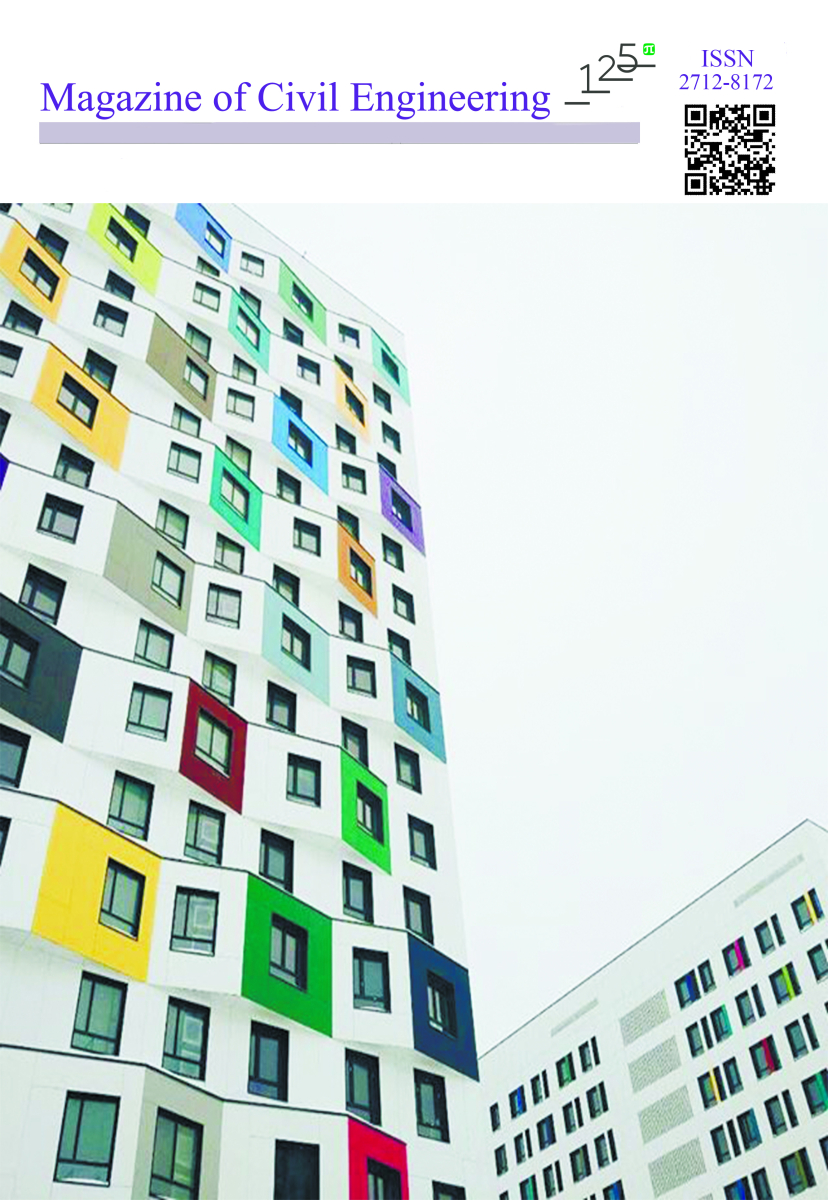Composition calculation and cracking estimation of concrete at early ages
Recently, variety of large-scale constructions from monolithic concrete structures have been built in different regions of Vietnam. The application fields of these structures are extensive including the marine construction, underground structures, the high-rise building erection and others. However, structures damage and cracking, caused by temperature stresses, become more popular and strong impact on operation reliability and durability. In this study, the American standard ACI 211.1-09 was used to determine the composition of heavyweight concrete for bridge foundation construction with sized 8 x 6 x 2.5 m. Assessment of the crack formation possibility in the concrete at an early age was made by analysis of temperature regime and the thermal-stress. The conducted studies' result provided the possibility of obtaining heavyweight concrete from Vietnam local raw materials with the workability of concrete mixture on 95 mm standard cone, compressive strength of 36.3 MPa heavyweight concrete at the age of 28 days of normal hardening and an average water resistance of 0.32 MPa samples. By applying the computer program MIDAS CIVIL, the maximum temperature in the concrete foundation center which was determined after 72 hours from the commencement of mixing of raw materials with water, equal to Tmax = 73.04 °C. At the same time, the structure temperature difference between the center (node 97) and surface (nodes 141 and 98) was 31.7 °C. In addition, at nodes 141 and 98 (in the external nodes) of the concrete foundation at 30 hours of concrete hardening, the tensile stress is greater than the tensile strength of the concrete leading to crack formation on concrete surface. Therefore, in order to prevent cracking, it is necessary to ensure proper care of the foundation surface during the concrete hardening. In the center of the concrete foundation (node 97), the tensile stress is higher than the allowable tensile strength at 590 hours of hardening concrete. Meanwhile, its strength is also quite high, the risk of concrete foundation center cracking caused by the heat release during cement hydration will not be serious great.


